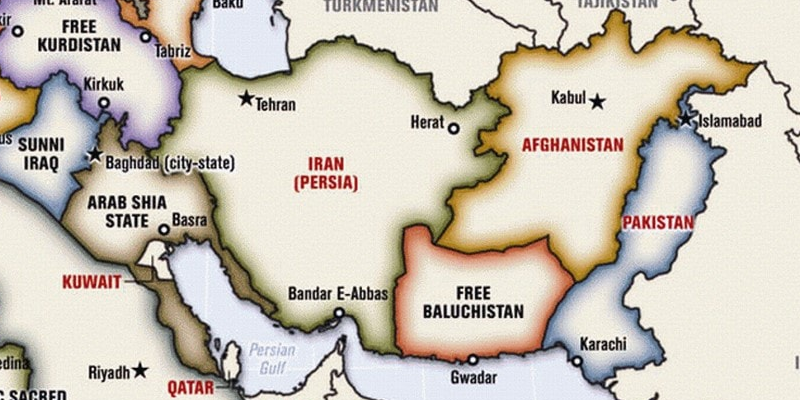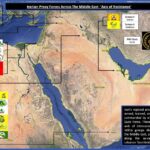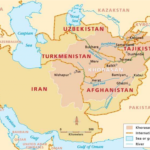First, for years now, I have been talking about the Balkanization of Pakistan, while most people have laughed at me for saying it. Let me paint the picture for you as it stands today.
On the Afghan border, we have the TTP (funded and armed by Karzai and India) rearing its ugly head to fight in Pakistan killing innocent citizens to advance their objectives of “sharia law and a Muslim society” in Pakistan. We know both to be false objectives, but it doesn’t change the fact that the country is one verge of war. I won’t get into the supporters and apologists who are funded by Saudi Arabia to convince the Pakistani public that they are justified in their cause.
Second, India is continually firing across the Line of Control in Kashmir and sometimes into Pakistan itself, trying to draw Pakistan’s attention away from the TTP threat, while painting the nation internationally with a terrorist brush for the government’s continued support of Laskher-e-Jhangvi, Sipah Sabah and other extremist organizations. The government happily allows this to happen because they are unwilling to take real action against these centers because they count them part of their vote bank. The recent release of Malik Ishaq is further proof of this fact.
Third, the Baluchistan Liberation Army is fully armed and supported by India through Karzai’s Afghanistan. We’ll have to see how much this changes with the Ghani government in Kabul. They are working very hard to disrupt the flow of basic utilities to the rest of Pakistan, while carrying out terrorist attacks in Quetta and other cities in Baluchistan.
Fourth, in Karachi, the city is a powder keg ticking closer and closer to explosion. From the TTP terrorists and target killers to the extortionists and gang violence, the city is continually on the verge of being shut down and bloodshed starting. Each time Karachi shuts down billions of rupees is lost to Pakistan in revenues. That’s roughly USD 10 million for each billion rupees.
For years, this has gone on because the political parties refuse to take a stern hand knowing that their own fingerprints would emerge in each group. The police has been politicized to the point that no police officer from the street cops to the top officers belong in the positions they hold and, more often than not, are complicit in the crimes that they are investigating. Most police officers throughout Pakistan have been appointed by politicians fulfilling their campaign promises, for those who don’t understand what I mean by politicized.
I’ll also point out that many of our media houses, top journalists and intellectuals like to point the finger at the Pakistan Army for all the problems, while the judiciary calls them into civilian courts to chastise them for every action. From Lal Masjid to former President Musharraf’s treason case, the civilian courts have gone to great lengths to make sure that the confidence in the Army is weakened with the people of Pakistan. The same judicial activism and bias is not used on the politicians that steal from the country every chance they get.
This was exemplified yesterday in Asif Zardari’s speech at Benazir’s 7th death anniversary, where he took potshots at Pervez Musharraf for not taking action against the terrorists. Seems that he, and the media, have forgotten that the PPP was the government after Musharraf resigned and did absolutely nothing to fight terrorism. Absolutely nothing.
As provincial and federal governments, the politicians have failed to provide any services to the people of Pakistan. From electricity and natural gas shortages to high inflation and security/justice, the politicians have proven that they are unwilling to solve the problems of the common citizen. Rather, the funds for these services are diverted to blue-eyed investors (political party favorites), increasing their own benefits and security, and syphoning into offshore accounts through unneeded mega-projects and corruption.
This, my friends and readers, is what Balkanization looks like. Internal conflicts, weak government, potential of civil war and attempts to discredit the national army so that a door is opened for foreign armies to enter to “save the country.”
Many of these problems are Pakistan’s own issues due to years of playing with dirty international players (the US, Saudi Arabia), but some of these issues are funded and propagated by foreign countries looking to force Pakistan closer to destabilization and destruction.
I mention all of these things because the author of the article doesn’t discuss them in his analysis of the region. He also goes to great pains to point out that India will be the beneficiary of a weakened or broken Pakistan. So let me ask you a question?
When investigating a murder, don’t you always look hardest at the one who benefits the most from death of the person?
This article originally appeared on Khalid Muhammad’s Agency Rules website.
Syed Khalid Muhammad, the Founder and Executive Director of CommandEleven, brings over three decades of leadership experience, guiding organizations globally in the realms of security, technology, marketing, and management. Notably, he authored "Agency Rules: Never an Easy Day at the Office," a pioneering espionage novel published in 2013. This novel holds historical significance as the first English-language espionage novel written by a Pakistani, achieving international bestseller status and currently available on Amazon.
Furthermore, Syed Khalid Muhammad has made notable appearances on several international TV channels, providing insightful analysis on security and geopolitics.
Since the establishment of CommandEleven in 2015, Khalid has expanded his expertise to encompass analysis, risk and threat assessment, and consultancy in the fields of terrorism, counter-terrorism, counterintelligence, geopolitics, and cognitive warfare. Within CommandEleven, he has successfully cultivated a comprehensive human and electronic intelligence network spanning the Indian subcontinent. Continuously growing, this network extends into various conflict zones globally, providing CommandEleven with actionable, real-time intelligence that forms the foundation of its analytical endeavors.
CommandEleven currently serves multiple clients, including corporate giants, by assisting them in analysis related to security, threat assessment, and threat mitigation strategies in Pakistan and Afghanistan.









